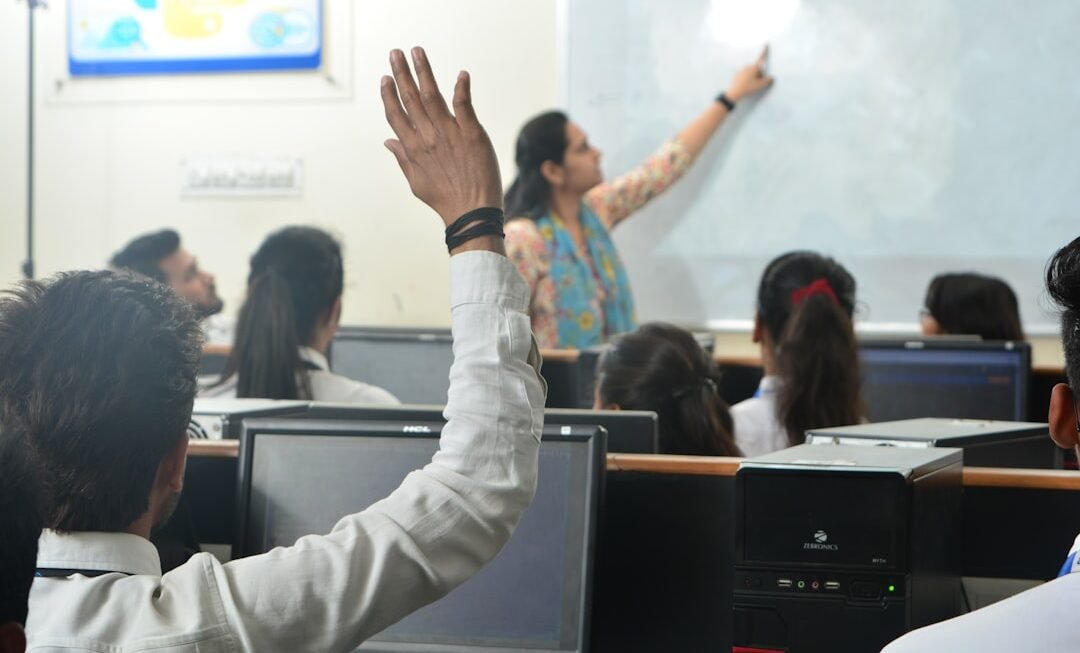Personalized learning is an educational approach that tailors the learning experience to meet the unique needs, preferences, and interests of each student. Unlike traditional education models that often adopt a one-size-fits-all methodology, personalized learning recognizes that learners come with diverse backgrounds, abilities, and motivations. This approach allows for a more customized educational experience, where students can progress at their own pace, engage with materials that resonate with them, and receive support tailored to their individual learning styles.
At its core, personalized learning involves a shift from teacher-centered instruction to a more learner-centered paradigm. This transformation is facilitated by various strategies, including differentiated instruction, adaptive learning technologies, and competency-based education. By focusing on the individual learner, personalized learning aims to foster deeper engagement, enhance motivation, and ultimately improve academic outcomes.
The integration of technology has further amplified the potential of personalized learning, enabling educators to harness data and analytics to create more effective and responsive learning environments.
Key Takeaways
- Personalized learning tailors education to individual student needs and interests, allowing for a more effective and engaging learning experience.
- AI plays a crucial role in online education by analyzing student data, providing personalized recommendations, and creating adaptive learning experiences.
- Understanding the unique needs of each learner is essential for creating personalized learning journeys that cater to their specific strengths and weaknesses.
- Personalized learning offers benefits such as improved student engagement, better academic performance, and increased motivation to learn.
- AI tools such as adaptive learning platforms, intelligent tutoring systems, and personalized learning algorithms are instrumental in creating personalized learning experiences for students.
The Role of AI in Online Education
Personalized Learning through Data Analysis
AI technologies can analyze vast amounts of data to identify patterns in student behavior, preferences, and performance. This capability allows educators to gain insights into individual learners’ needs and adapt instructional materials accordingly.
Real-time Assessment and Feedback
For instance, AI-driven platforms can assess a student’s strengths and weaknesses in real-time, providing tailored resources that target specific areas for improvement. Moreover, AI can facilitate the creation of intelligent tutoring systems that offer personalized feedback and guidance. These systems can simulate one-on-one interactions with a tutor, providing explanations and support based on the learner’s current understanding.
Enhancing the Learning Experience
By leveraging natural language processing and machine learning algorithms, AI can engage students in meaningful conversations, answer questions, and suggest relevant resources. This level of interactivity not only enhances the learning experience but also empowers students to take ownership of their educational journeys.
Understanding the Needs of Individual Learners

To effectively implement personalized learning, it is crucial to understand the diverse needs of individual learners. Each student brings a unique set of experiences, cultural backgrounds, and cognitive abilities to the educational environment. Recognizing these differences is essential for creating an inclusive and effective personalized learning experience.
Educators must consider factors such as learning styles, interests, prior knowledge, and emotional readiness when designing instructional strategies. One effective method for understanding individual learners is through formative assessments that provide ongoing feedback about student progress. These assessments can take various forms, including quizzes, reflections, and project-based evaluations.
By analyzing the results, educators can identify trends and gaps in understanding, allowing them to tailor their teaching approaches accordingly. Additionally, engaging students in self-assessment and goal-setting can empower them to articulate their own learning needs and preferences, fostering a sense of agency in their educational journey.
Benefits of Personalized Learning Journeys
The benefits of personalized learning journeys are manifold, impacting both students and educators alike. For students, personalized learning fosters greater engagement by allowing them to explore topics that genuinely interest them. When learners have a say in their educational paths, they are more likely to invest time and effort into their studies.
This intrinsic motivation can lead to improved academic performance and a deeper understanding of the material. Furthermore, personalized learning promotes mastery over content rather than mere completion of tasks. Students can progress at their own pace, ensuring they fully grasp concepts before moving on to more complex topics.
This mastery-based approach reduces the anxiety often associated with standardized testing and allows for a more meaningful assessment of student capabilities. For educators, personalized learning provides valuable insights into student performance through data analytics, enabling them to make informed decisions about instructional strategies and resource allocation.
AI Tools for Personalized Learning
A variety of AI tools have been developed to support personalized learning in online education. Learning management systems (LMS) equipped with AI capabilities can track student progress and engagement levels while offering recommendations for additional resources or activities tailored to individual needs. For example, platforms like DreamBox Learning utilize adaptive algorithms to adjust math lessons based on real-time student performance data.
Another notable AI tool is intelligent tutoring systems (ITS), which provide personalized feedback and guidance in subjects such as mathematics and language arts. These systems analyze student responses to tailor subsequent questions or explanations based on their understanding. Platforms like Carnegie Learning employ ITS technology to create customized learning experiences that adapt to each student’s pace and proficiency level.
Additionally, AI-driven analytics tools can help educators identify trends in student performance across different demographics or subject areas. By leveraging these insights, teachers can implement targeted interventions or adjust their instructional methods to better meet the needs of their students.
Implementing Personalized Learning in Online Education

Implementing personalized learning in online education requires careful planning and consideration of various factors. First and foremost, educators must establish clear learning objectives that align with both curriculum standards and individual student goals. This alignment ensures that personalized learning experiences remain focused on achieving desired outcomes while accommodating diverse learner needs.
Next, technology plays a crucial role in facilitating personalized learning experiences. Educators should select appropriate digital tools that support adaptive learning pathways and provide real-time feedback. Training teachers to effectively use these technologies is equally important; professional development programs should emphasize best practices for integrating technology into personalized learning environments.
Collaboration among educators is also essential for successful implementation. Sharing insights and strategies can help create a cohesive approach to personalized learning within a school or district. Additionally, involving students in the design process can lead to more relevant and engaging learning experiences that resonate with their interests and aspirations.
Overcoming Challenges in Personalized Learning
Despite its many advantages, personalized learning is not without challenges. One significant hurdle is the potential for increased workload on educators who must design individualized learning experiences for each student. This demand can lead to burnout if not managed effectively.
To address this issue, schools should consider providing adequate resources and support systems that enable teachers to collaborate and share responsibilities. Another challenge lies in ensuring that all students have access to the necessary technology and internet connectivity required for personalized learning experiences. Disparities in access can exacerbate existing inequalities in education.
Schools must prioritize equity by providing devices and internet access to underserved populations while also exploring alternative solutions such as offline resources or community partnerships. Finally, resistance from stakeholders—such as parents or administrators—can impede the adoption of personalized learning initiatives. Clear communication about the benefits of personalized learning and evidence-based practices can help alleviate concerns and foster buy-in from all parties involved.
Ensuring Equity in Personalized Learning
Equity is a critical consideration in the implementation of personalized learning initiatives. As educational institutions strive to create inclusive environments that cater to diverse learners, it is essential to ensure that all students have equal access to high-quality resources and support systems. This commitment involves recognizing systemic barriers that may hinder certain groups from fully benefiting from personalized learning opportunities.
One approach to promoting equity is through culturally responsive teaching practices that acknowledge and celebrate students’ diverse backgrounds. Educators should strive to incorporate materials and perspectives that reflect the cultural identities of their students while also addressing any biases present in the curriculum. By fostering an inclusive atmosphere where all voices are valued, schools can create a sense of belonging that enhances student engagement.
Additionally, ongoing professional development for educators is vital in equipping them with the skills necessary to address equity issues effectively. Training programs should focus on strategies for differentiating instruction based on students’ unique needs while also emphasizing the importance of building relationships with learners from diverse backgrounds.
Data Privacy and Security in Personalized Learning
As personalized learning increasingly relies on data collection and analysis, concerns regarding data privacy and security have come to the forefront of educational discourse. The use of AI tools often necessitates gathering sensitive information about students’ academic performance, behavioral patterns, and personal preferences. Protecting this data is paramount to maintaining trust between educators, students, and parents.
Educational institutions must implement robust data governance policies that outline how student information will be collected, stored, and utilized. Transparency is key; schools should communicate clearly with stakeholders about data practices while ensuring compliance with relevant regulations such as FERPA (Family Educational Rights and Privacy Act) or GDPR (General Data Protection Regulation). Moreover, training staff on best practices for data security is essential in safeguarding sensitive information from potential breaches or misuse.
Regular audits of data management practices can help identify vulnerabilities while fostering a culture of accountability within educational institutions.
The Future of Personalized Learning Journeys
The future of personalized learning journeys appears promising as advancements in technology continue to reshape educational landscapes. Emerging technologies such as virtual reality (VR) and augmented reality (AR) hold significant potential for creating immersive learning experiences tailored to individual preferences. These tools can transport students into interactive environments where they can explore concepts in ways that resonate with their interests.
Furthermore, as AI continues to evolve, its capabilities will likely expand beyond current applications in adaptive learning platforms. Future iterations may incorporate predictive analytics that anticipate student needs before they arise or even facilitate peer-to-peer collaboration based on shared interests or complementary skills. As educational institutions embrace these innovations, it will be crucial to maintain a focus on equity and inclusivity within personalized learning frameworks.
Ensuring that all students have access to cutting-edge technologies will be essential for maximizing the benefits of personalized education while minimizing disparities among different populations.
Success Stories of Personalized Learning in Online Education
Numerous success stories illustrate the transformative impact of personalized learning in online education settings. One notable example is the Khan Academy platform, which offers a wealth of resources tailored to individual learners’ needs across various subjects. By allowing students to progress at their own pace through interactive exercises and instructional videos, Khan Academy has empowered millions of learners worldwide to take charge of their education.
Another compelling case is found within the Summit Learning program implemented in several schools across the United States. This initiative combines project-based learning with personalized pathways that allow students to set goals based on their interests while receiving ongoing support from mentors. The program has demonstrated significant improvements in student engagement and academic performance by fostering a sense of ownership over the learning process.
These examples underscore the potential for personalized learning journeys to revolutionize online education by creating more engaging, relevant experiences that cater to individual learners’ needs while promoting equity and inclusivity within educational environments.












